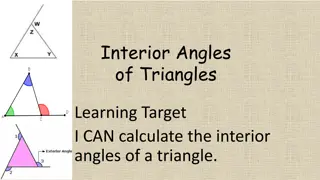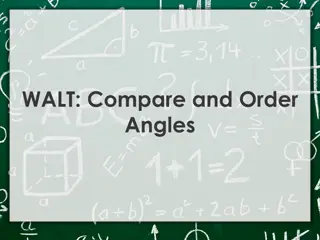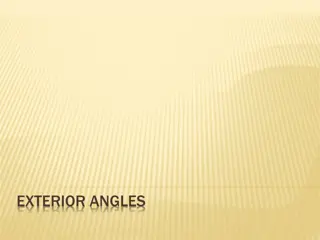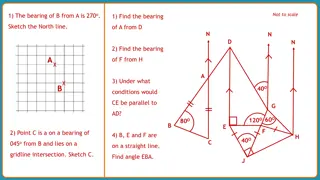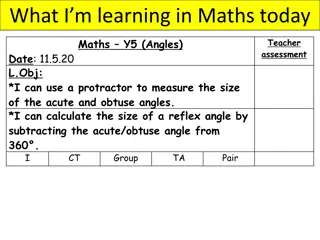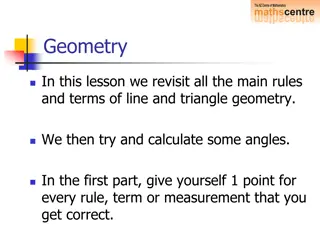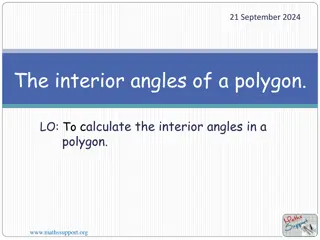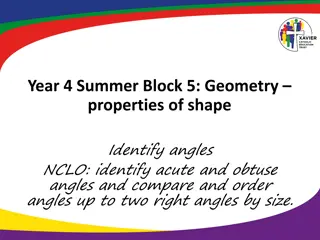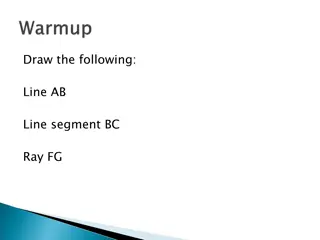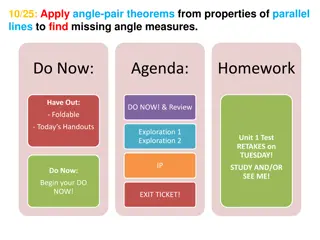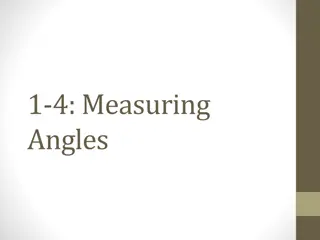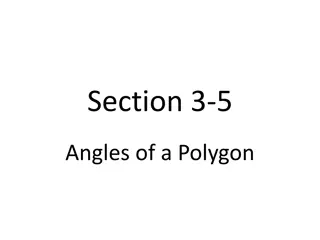
Angles: Measurement and Classification
Explore the concept of angles, from measuring angles and naming them to classifying based on their measures. Learn about angle addition postulate and practice problems to enhance your understanding. Dive into the world of angles and improve your geometry skills.
Download Presentation

Please find below an Image/Link to download the presentation.
The content on the website is provided AS IS for your information and personal use only. It may not be sold, licensed, or shared on other websites without obtaining consent from the author. If you encounter any issues during the download, it is possible that the publisher has removed the file from their server.
You are allowed to download the files provided on this website for personal or commercial use, subject to the condition that they are used lawfully. All files are the property of their respective owners.
The content on the website is provided AS IS for your information and personal use only. It may not be sold, licensed, or shared on other websites without obtaining consent from the author.
E N D
Presentation Transcript
1-4 Measuring Angles
When naming angle using three points, the vertex must go in the middle.
Problem 2: Measuring and Classifying Angles What at the measures of <LKN, <JKL, and <JKN? Classify each angle as acute, obtuse, or right, or straight.
Problem 2: Measuring and Classifying Angles What at the measures of <LKH, <HKN, and <MKH? Classify each angle as acute, obtuse, or right, or straight.
Synchronized swimmers form angles with their bodies, as shown in the picture. If m<GHJ = 90, what is m<KLM? If m<ABC = 49, what is m<DEF?
Problem 4: Using the Angle Addition Postulate
Problem 4: Using the Angle Addition Postulate

